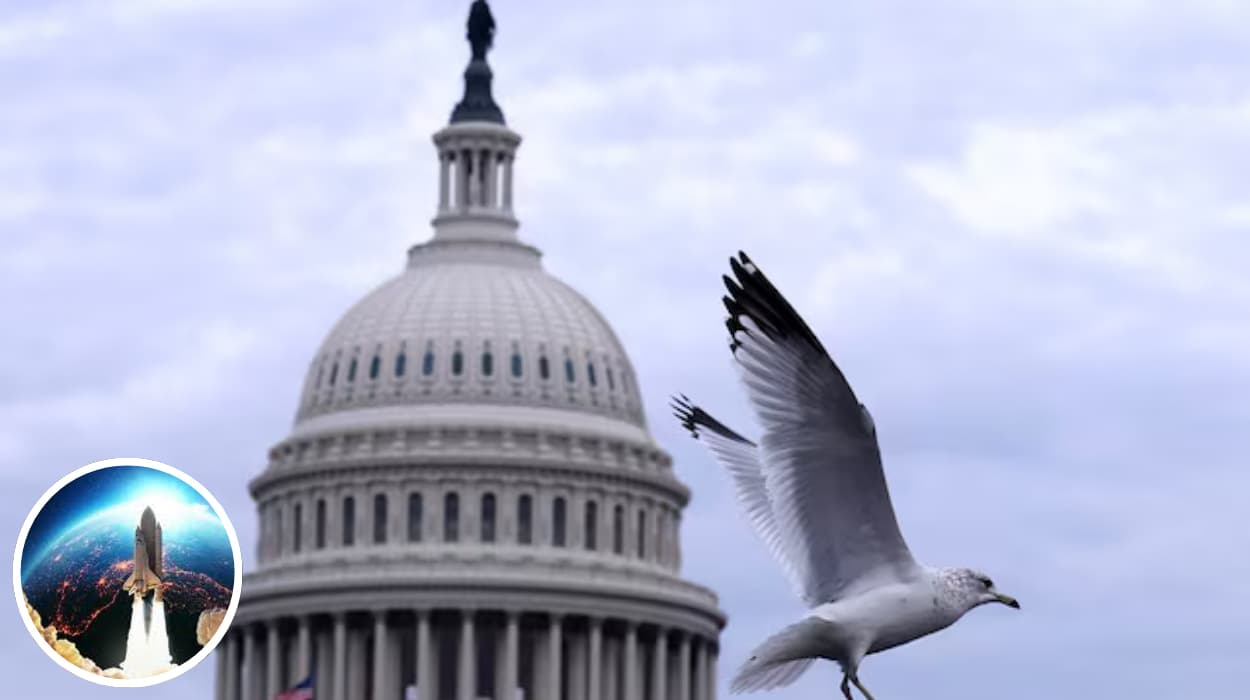Key Points
- Space industry leaders are urging the US Congress to maintain funding for a critical satellite collision prevention system.
- The system in question plays a vital role in tracking and preventing potential collisions between satellites and space debris.
- Industry experts warn that eliminating this system could endanger both commercial and government satellites, threatening communications, navigation, and national security.
- Congress is considering budget cuts that would impact the system’s operations.
- Multiple stakeholders, including private space companies and scientific organizations, have voiced strong opposition to the proposed cuts.
- The debate comes amid a rapid increase in the number of satellites and debris in Earth’s orbit, raising the risk of catastrophic collisions.
- No official decision has been made, and discussions are ongoing in relevant Congressional committees.
The US space industry is urgently appealing to Congress to preserve funding for a system that tracks and prevents satellite collisions, warning that proposed budget cuts could jeopardize the safety and functionality of critical space infrastructure.
Why Is the Satellite Collision Prevention System So Important?
As reported by multiple industry leaders and space policy experts, the satellite collision prevention system—often referred to as space situational awareness (SSA) infrastructure—serves as the backbone for monitoring the increasingly crowded environment in Earth’s orbit. This system provides real-time data on the location and trajectory of thousands of satellites and pieces of space debris, allowing operators to maneuver their assets and avoid potentially disastrous crashes.
According to statements from private space companies and scientific organizations, the system is not only essential for commercial operations but also underpins national security and global communications. The loss or degradation of this capability could lead to increased collisions, resulting in service disruptions, loss of valuable assets, and the creation of even more hazardous debris.
What Are the Concerns Raised by the Space Industry?
Industry leaders have expressed grave concerns about the potential consequences of cutting funding for the collision prevention system. As highlighted by several experts, the rapid proliferation of satellites—driven by the growth of mega-constellations for broadband internet and other services—has dramatically increased the risk of in-orbit collisions.
A spokesperson for a leading commercial satellite operator stated,
“The current system is already stretched thin as it tracks tens of thousands of objects. Any reduction in capability would be a step backward at a time when we need to be moving forward to ensure the safety and sustainability of space operations.”
Scientific organizations have echoed these warnings, emphasizing the potential for cascading collisions—a scenario known as the Kessler Syndrome—where one collision creates debris that triggers further collisions, potentially rendering parts of Earth’s orbit unusable for decades.
What Is Congress Considering, and Why?
Congress is currently debating a series of budget proposals that would reduce funding for several federal programs, including the satellite collision prevention system. Lawmakers supporting the cuts argue that fiscal constraints require difficult choices, and that some functions could potentially be transferred to the private sector or international partners.
However, critics of the proposal argue that the unique technical challenges and national security implications of space traffic management make it unsuitable for outsourcing or internationalization without robust oversight.
As reported by Karen Wah of CBS News,
“Officials are racing to search for solutions as the number of satellites in orbit continues to rise. The debate in Congress reflects broader concerns about how to manage the growing risks in space while balancing fiscal realities”.
Who Has Spoken Out Against the Proposed Cuts?
A broad coalition of stakeholders has voiced opposition to the proposed budget reductions:
- Private Space Companies: Executives from major satellite operators and launch providers have issued joint statements and testified before Congressional committees, highlighting the risks to their operations and customers.
- Scientific Organizations: Researchers and advocacy groups have submitted letters and reports detailing the potential scientific and economic impacts of increased satellite collisions.
- National Security Experts: Former and current defense officials have warned that the US military relies on the system to protect its own satellites and maintain situational awareness in space.
During a recent hearing, a representative from a leading space industry association stated,
“We cannot afford to let budget cuts undermine the safety of our space infrastructure. The risks are simply too great, and the potential consequences too severe.”
What Are the Broader Implications for Space Safety?
The debate over the satellite collision prevention system comes at a critical juncture for the global space industry. The number of active satellites has surged in recent years, with thousands more planned for launch in the coming decade. At the same time, space debris from defunct satellites and rocket stages continues to accumulate, increasing the risk of collisions.
Experts warn that losing or weakening the current tracking system could set back efforts to develop more advanced space traffic management solutions, including automated collision avoidance and international data sharing.
As noted in a recent NBC News broadcast, “The future of space operations depends on our ability to manage the growing congestion in orbit. Any reduction in our tracking capabilities would have far-reaching consequences for both commercial and government users”.
What Happens Next?
No final decision has been made regarding the funding for the satellite collision prevention system. Congressional committees are expected to continue deliberations in the coming weeks, with input from industry, scientific, and national security stakeholders.
Advocates for maintaining the system are urging lawmakers to consider the long-term costs of inaction, emphasizing that preventing satellite collisions is far less expensive than dealing with the aftermath of a major incident.
As the debate continues, the space industry remains united in its message: Preserving the satellite collision prevention system is essential for the safety, security, and sustainability of space activities.

